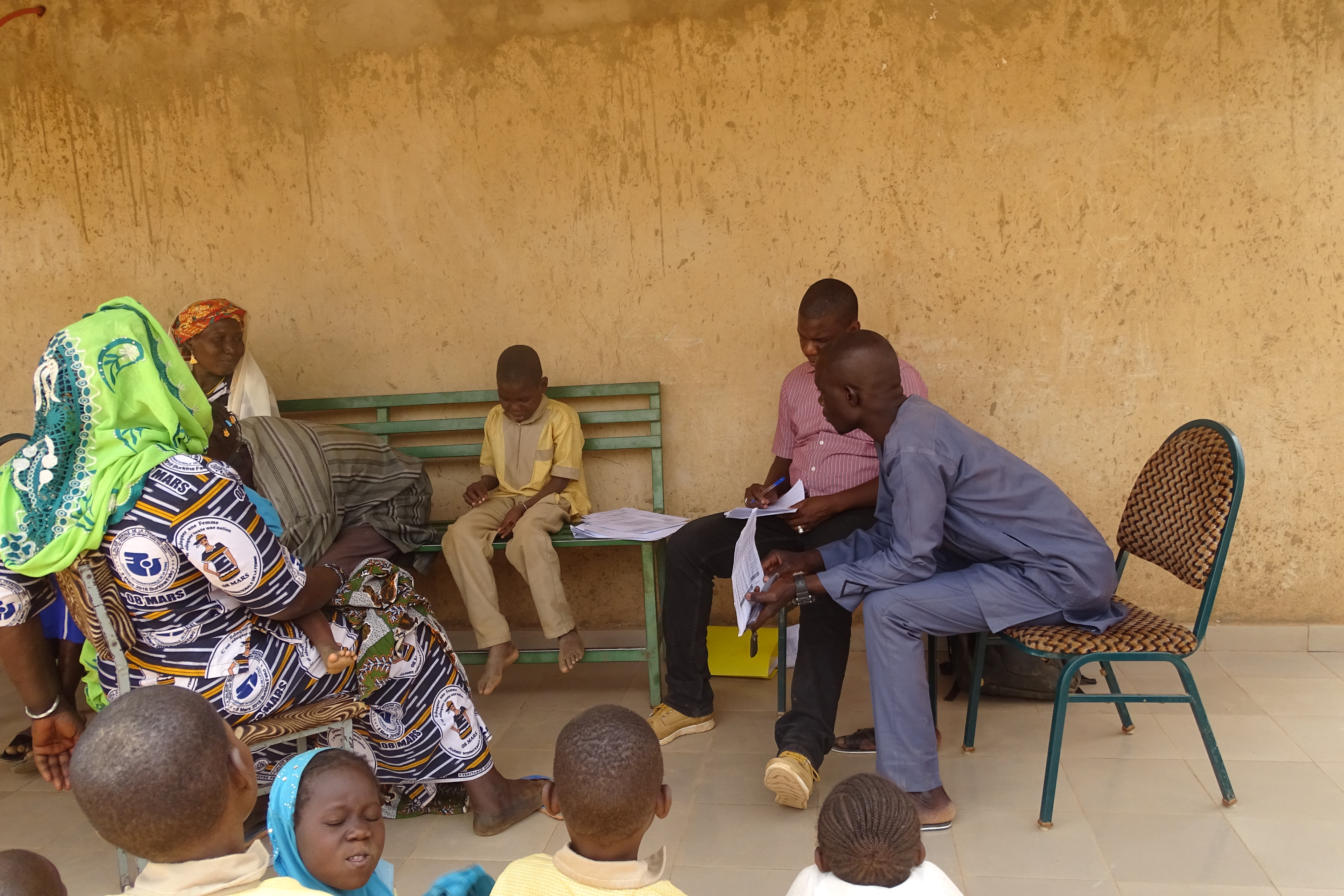The right to education of internally displaced children/youth in Burkina Faso made possible thanks to WAN
The insecurity affecting the Sahel has left hundreds of thousands of people displaced, including many children and young people. In the "9th" district of Ouagadougou in Burkina Faso, some large families are settled and live in precarious conditions, with food, economic, sanitary and housing problems. Sensitive to the situation of internally displaced children and young people and faithful to its commitment in their favour, ISS-WA, through WAN, set up in December 2019, as a matter of urgency, an initiative to promote the rights to education called INITIATIVE 1-2-3. A total of 123 of them have been supported in an educational project. Three months after their reintegration into schools, ISS-WA and the AMWCY organised a follow-up mission for these children and their families.
«I was very sad to flee my village and abandon my friends, along with my parents, brothers and sisters because of the war. I could no longer go to school and that made me very unhappy. But today I have started school again thanks to people who have helped us. I am very happy; I will be able to study and also make new friends ». This is also how Ali, a pupil in the 9th grade, one of the young beneficiaries of WAN, who was met during the follow-up expressed himself. Like him, the 122 other children and young people supported, and their families have been relieved: the threat of dropping out of school is now behind them.
To find their way back to school, these beneficiaries had to rely not only on the support of ISS-WA through WAN, but also on the understanding and commitment of promoters of some private schools, who accepted to welcome them, almost 3 months following the beginning of the school year and on one hand, significantly reduce their school fees.
Supporting Internally Displaced Families
Support for the IDPs in Burkina Faso was not limited to the schooling of children and young people. It is part of a holistic approach that also takes into account vocational training for those beyond school-going age, the development of a national plan to anticipate and manage rural-urban internal migration in collaboration with the government of Burkina Faso, but above all the strengthening of families' economies so that they will be able to provide for the basic needs of their children. The follow-up mission therefore made it possible to evaluate these families and to carry out the initial reflections on the Income-Generating Activities to be set up.
- Log in to post comments


